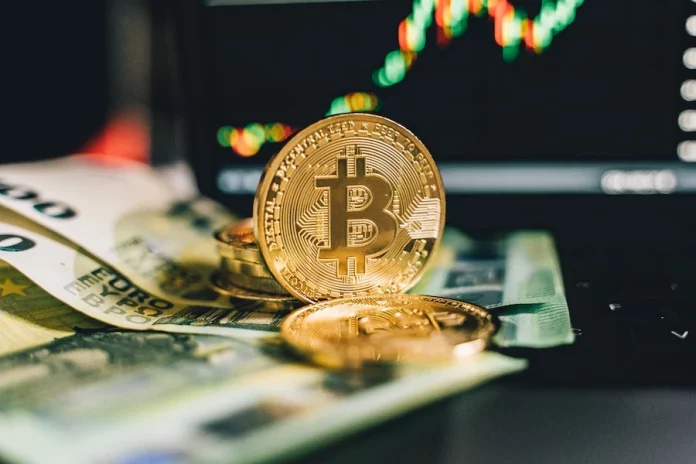The collapse of FTX, a multi-billion dollar Crypto exchange founded by Sam Bankman-Fried, has shocked the Cryptocurrency world.
In an effort to explain how the empire was brought to its knees in a matter of days, the company’s attorneys outlined chaos and poor management at a court hearing.
All token values fell, and investors rushed to withdraw their funds from several Cryptocurrency platforms.
The sharp decline in the price of Bitcoin and other Cryptocurrencies coincides with a swarm of unfavorable news stories and events that have affected the asset sector.
The price drop news in trading and exchange platforms like the tesler app alarmed several investors all throughout 2022
In this article, we shall discuss all the reasons behind Bitcoin’s fall. Keep reading.
Why Did Bitcoin’s Price Fall?
Given below are the five most important reasons behind Bitcoin’s apparent price fall—
1. Growth Of Decentralized Finance
A record-breaking amount of trading activity occurred in the Decentralized Finance (DeFi) market, and thousands of Cryptocurrency users locked away their funds in various DeFi protocols to earn large rewards.
Many people were surprised by the success of DeFi, but investors were taking a bigger risk than in regular markets to profit from the high yield these protocols offered.
To participate in the mania, several investors changed their Bitcoin holdings into the ether or other tokens enabled by smart contracts.
As non-fungible tokens (NFTs) have gained popularity in recent months due to the promise of greater financial rewards, DeFi has seen a second wave of investment.
2. Changes In US Regulations
The infrastructure bill, which includes changing the laws governing Bitcoin taxes, was passed by the U.S. Senate.
One of the amendments calls for Cryptocurrency brokers to disclose transactions, but the term “broker” is not explicitly defined.
It appears less likely that anything can be done to change the Crypto reporting requirements before the measure is voted into law, despite attempts by a bipartisan group of congressional members who support Crypto to amend the bill.
Additionally, the continuing regulatory battles between state securities authorities in the United States and Crypto lending firms like Celsius and BlockFi resulted in the SEC’s cautious attitude to Cryptocurrencies.
Experts predict that establishing a Bitcoin ETF might lead to a surge in institutional and retail interest in the digital currency, which could help it reach the projected price of $100,000.
3. The Rising Popularity Of NFTs
Non-fungible Tokens (NFTs) have gained popularity as a means of trading assets, with a more than fivefold increase in market value since December 2020.
As of September 17, the total amount spent on NFT purchases during a 30-day period increased from around $10 million at the beginning of 2021 to almost $2.6 billion.
The high-quality artwork, collectibles, and sports memorabilia that can be bought with these digital tokens are what fuel demand for NFTs.
Due to the rise of DeFi and NFT, Bitcoin’s market size as a proportion of the overall market cap of Cryptocurrencies has declined dramatically, falling to about 41.9%.
This shows that NFTs have greatly increased access to the Cryptocurrency market and that Bitcoin is no longer attracting the same amount of interest as it did nine months ago.
As traders and investors look to diversify their portfolios with other digital assets, there may be more competition for Bitcoin’s market share as a result.
4. The Rising Value Of The Dollar
After the release of the August retail sales data, which revealed a 0.7% gain in retail sales, the dollar surged to almost three-week highs.
This information demonstrates that the US economy is growing strongly and that companies are adjusting to the new market conditions following COVID-19 lockdowns.
The urge for consumption has not lessened despite the coronavirus epidemic, which has dampened interest in financial hedges like Bitcoin.
After the U.S. inflation rate fell in August, investors have been less interested in riskier investments like Bitcoin and other Cryptocurrencies because they are more certain that the economic future is steady.
5. Complete Ban In China
In a recent announcement, the People’s Bank of China (PBoC) outlawed mining and all Cryptocurrency transactions, including Crypto-to-Crypto and Crypto-fiat transfers.
This implies that any Cryptocurrency trading-related operations, including the purchase, sale, and exchange of digital currencies like Bitcoin, ether, and tether, are outlawed in the nation.
Also, the Chinese central bank made it plain that anyone discovered working for offshore Cryptocurrency exchanges would be subject to investigation.
In order to totally phase out Cryptocurrency in the nation, the National Development and Reform Commission (NDRC) has announced intentions to intensify the implementation of the country’s Crypto mining crackdown.












